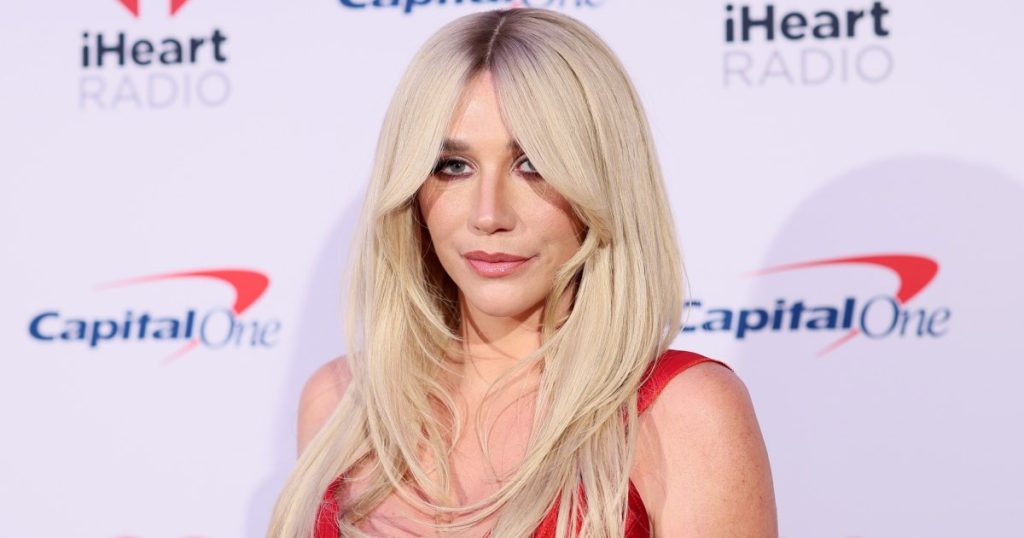Kesha, the pop star behind the 2010 hit single “Tik Tok,” injected a dose of levity into the tense atmosphere surrounding the impending ban of the social media platform TikTok in the United States. As users grappled with the imminent loss of the popular app, Kesha took to Instagram to reassure fans that her song, sharing a title with the platform, would endure. Her post, featuring a video of herself with the song playing in the background, declared, “TikTok may be temporary, but TiK ToK is forever,” accompanied by a peace sign and a black heart emoji. This lighthearted message served as a reminder that while the digital landscape might shift, the cultural impact of her music remained steadfast. The song’s enduring popularity is evidenced by its nine-week reign atop the Billboard Hot 100 chart upon its release.
Beyond its chart success, “Tik Tok” has also been a vehicle for Kesha’s evolving stance on social issues. Originally, the song’s opening line referenced rapper P. Diddy. However, following sexual assault allegations against Diddy by Cassie Ventura in 2023, Kesha altered the lyrics during a performance in Oakland, California. She replaced the reference to Diddy with a self-referential line, singing, “Wake up in the morning feeling just like me.” This subtle yet significant change reflected Kesha’s solidarity with Ventura and signaled her stance against the alleged actions of the music mogul. Diddy, who has consistently denied all allegations, was subsequently incarcerated at the Metropolitan Detention Center in New York.
Kesha’s lyrical adaptation continued to evolve. During her 2024 Coachella performance, she further sharpened her message, changing the opening line to a more explicit denunciation of Diddy. This revised lyric, “Wake up in the mornin’ like f—k P. Diddy,” solidified her position and underscored her refusal to remain silent on issues she deems important. Later, in an encounter with TMZ at LAX airport, Kesha confirmed the permanence of the lyric change, encouraging fans to learn the new version for her upcoming shows. Her assertive statement, “I’m not the kind of person that just shuts the f— up,” coupled with her declaration of unwavering integrity, highlighted her commitment to using her platform to express her convictions.
The fate of the social media platform TikTok, meanwhile, was sealed by the Supreme Court’s upholding of the U.S. government’s proposed ban. The Protecting Americans from Foreign Adversary Controlled Applications Act, driven by Congressional concerns over potential Chinese espionage through ByteDance, TikTok’s parent company, paved the way for the ban. ByteDance pledged to remove the app from U.S. app stores and cease its operations in the country, effectively rendering the platform inaccessible to American users. This decision came after the company’s unsuccessful attempts to secure assurances from the U.S. government that Apple and Google would not face penalties for hosting and distributing the app. The impending shutdown, scheduled for midnight on Sunday, January 19th, signaled the end of an era for millions of American TikTok users.
The ban’s ramifications extended beyond casual users, significantly impacting content creators and influencers whose livelihoods depended on the platform. The TikTok Creator Fund, a program that provided financial support to creators, was effectively dissolved, along with opportunities for revenue generation through brand sponsorships and merchandise sales. The sudden loss of income represented a substantial blow to many who had built their careers on TikTok, forcing them to seek alternative platforms and strategies to maintain their online presence and income streams.
The contrasting fates of Kesha’s enduring hit song and the ephemeral nature of the TikTok platform underscored the dynamic and ever-shifting nature of the digital landscape. While one remained a constant, a testament to its cultural impact and adaptability, the other faced an abrupt end, leaving a void in the online world and prompting a scramble for alternative platforms. Kesha’s lighthearted message amidst the uncertainty, however, served as a reminder that even in the face of digital disruption, the power of music and artistic expression could transcend the limitations of technology and continue to resonate with audiences.

